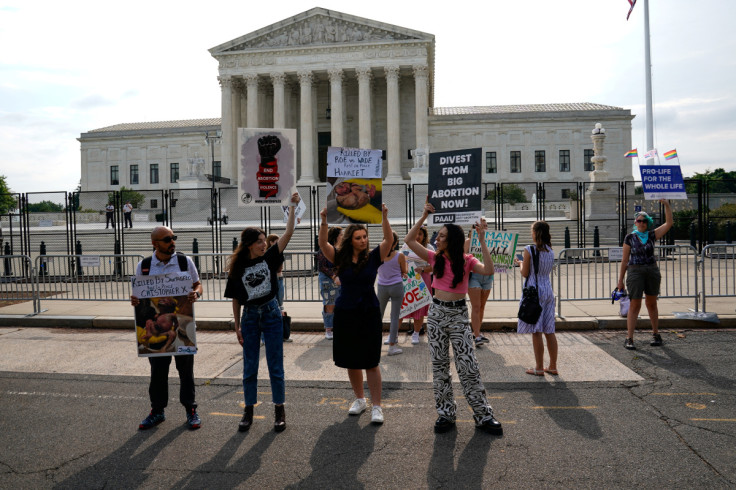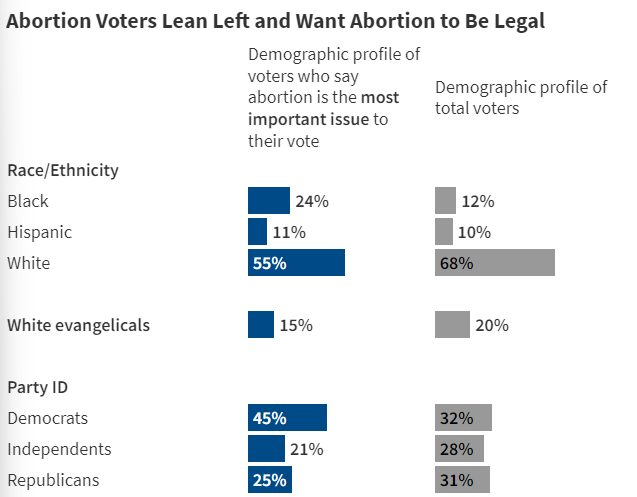
Abortion rights are shaping up to be a key issue that will determine many voters' decision in this year's elections, but a new poll by KFF shows large disparities when it comes to the demographics who consider it to be the most important issue at the time of casting their ballot.
Latinos, in this case, are the demographic with the least amount of respondents saying this is the case for them: 11% agreed with the premise, compared with 55% of Whites and 24% of Blacks. It was the lowest figure for all groups surveyed, including in other categories such as partisanship, ideology, gender and age.
Looking at other key takeaways, the study showed that voters who say abortion is the most important issue are "disproportionately younger, Democratic-leaning and want abortion to be legal in all cases."
The demographics that comprise this group are mostly made up of "Black voters, Democratic voters, women voters, and the youngest voting bloc - voters ages 18-29," the poll's findings added.
This last group, the most impacted by reproductive health policy along with women aged up to 49-years-old, believe the elections will be a pivotal moment. 16% said it's the most important issue for their votes, while a large majority of them said decisions regarding the issue should be made by women in consultation with her doctor.
Moreover, "two-thirds (65%) want the federal government to pass laws to protect abortion nationwide, and at least two thirds support laws protecting access to abortions for patients experiencing pregnancy-related emergencies (88%), protecting a patient's right to travel to get an abortion (79%), and guaranteeing a federal right to abortion (76%)."

Delving into the different circumstances in which people should be able to get abortions, the study found "broad support, even among partisans," for those who experience pregnancy-related emergencies and "protecting patients' right to travel to access abortions."
However, there is partisan disagreement on other proposals "such as whether there should be a federal right to abortion or a nationwide 16-week abortion ban." "In addition, while among the public overall about six in ten (58%) oppose a 16-week abortion ban, a majority of Republicans (63%) adults support this proposal, while most Democrats (75%) and independents (59%) oppose it."
Beyond the different demographic's views, abortion has proven to be a winning issue for Democrats in local elections throughout the years since Roe V. Wade was overturned. A series of states have been advancing efforts to enshrine abortion rights at a local levels, many of which will be voted in November.
At least eight states have done so already, with Colorado being among the latest to join the fray. Other states where similar efforts are underway include Florida, Arizona, Montana and Missouri.
© 2025 Latin Times. All rights reserved. Do not reproduce without permission.





